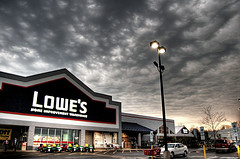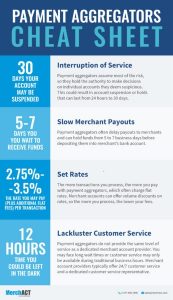Point of Sale systems has been a staple of businesses for a number of years allowing cashiers to zip customers through the checkout line with speed and accuracy. They also serve up benefits to the businesses themselves since employers and managers are able to better keep track of inventory while analyzing sales patterns and flagging items for reorder.
It is this ability to help business owners streamline their companies that attract small business owners to the technology, a task made even more important when operating in the era of the giant retailer.
This is the view of Shopify POS systems CEO, Tobias Lütke who began his company to “preserve the opportunity for small businesses to engage in e-commerce”. However, POS systems aren’t one-size-fits-all.
Under close examination, employers may discover that there are many point-of-sale features that can make all the difference to them in the New Year. Here are seven of those POS features that can help streamline your small business in 2018.
Support – For a small business that can’t access tons of resources, using a new point of sale system can be a tricky business. If you aren’t tech savvy and can’t afford to spend lots of time and money in training for you and your employees, learning as you go may be the only option.
This is why it is important that whatever point of sale system you use, you must ensure that you have access to quality support as you navigate its many features and capabilities. Not having a good grip on your point of sale system could jeopardize your sales and your relationships with your customers since transactions that don’t proceed smoothly could be seen as amateurish. This is why whichever POS system you settle on, 24/7 support should be a priority.
Sales Reporting and Analytics – A good point of sale system should not be a glorified cash register. It should furnish you with quality data and insight. And since data is only valuable when it is actionable, having a POS system with sales reporting and analytics allows you to take hold of your sales data and analyze it for insight.
This feature will allow you to keep a record of sales while keeping track of how much of a particular item you sell. Armed with this knowledge, small business owners can amp up their stocks of those top revenue earners. Not only will this feature help the revenue-earning potential of your store, but it will also help you prevent over-ordering of items that don’t move as well.
Customer Management – The problem with shoppers is that identifying the ones most beneficial to your business can be a difficult task. Knowing your best customer grants you tools that other businesses won’t have access to.
The great thing about this feature is that it allows you to know who your best customers are based on how they patronize your business. Using this information, you can then design loyalty programs around their patronage. You are also able to create a customer profile from which you can look for trends among customers.
Inventory Management – Having insufficient knowledge about your inventory, your surpluses and your needs, is a recipe for unprofitability. Business success means knowing how your inventory stocks are depleting, when to reorder goods and when not to reorder. Not knowing your inventory can lead to shortages of items, especially best-selling ones.
In addition to this, ordering too many of a particular item ties up capital in unproductive ways. Besides knowing which items are in stock. Having your finger on inventory control means you have a good idea of the seasonality of various items, allowing you to stock up before their popularity rebounds.
Mobility – For smaller businesses, space can always be a little bit of an issue. Usually, your business is forced to occupy smaller quarters until it is profitable enough to move to a bigger space. Therefore, not having to dedicate a space specifically for a checkout counter means freeing up more space on the floor for merchandise and potentially increased sales. This is why many small businesses opt for mobile point-of-sale systems in lieu of stationary ones.
Mobile POS systems can also give retailers a leg up as this allows employees more engagement with customers. They are then free to answer customers’ questions and/or suggest complimentary products. This feature can also help retailers prevent theft by allowing employees more freedom throughout the store can put a little apprehension into would-be thieves.
On-Demand Financial Data – A good point of sale system will give your business a number of data points that it would find indispensable. In addition to this, a point of sale system should unify a number of data points making them current and easily updatable. You should not need separate programs to view data critical to your company’s operations.
Thus, a quality point of sale systems would allow you to monitor sales, your employees’’ sales performance and view other metrics such as the time between your customers’ arrival and he or she being attended to. Granted, the availability of many of these metrics depends on your particular POS and how your system is set up, however, you must see to it that the POS system you choose will make available the metrics your company needs.
Managing a small retail business can be a difficult task when retail giants such as Amazon and Wal-Mart threaten your company’s viability at every juncture. However, having a quality point of sale systems can go a long way towards winning battles every day.
The ability to streamline your business while keeping track of its most important data points will give the retailer a hand as they try to fulfill customers’ needs and keep them coming back for more. Of course, since point-of-sale systems aren’t all the same, business owners will need to invest some time and effort into assessing which system has the features to fit their requirements.
Business & Finance Articles on Business 2 Community(35)
Report Post



